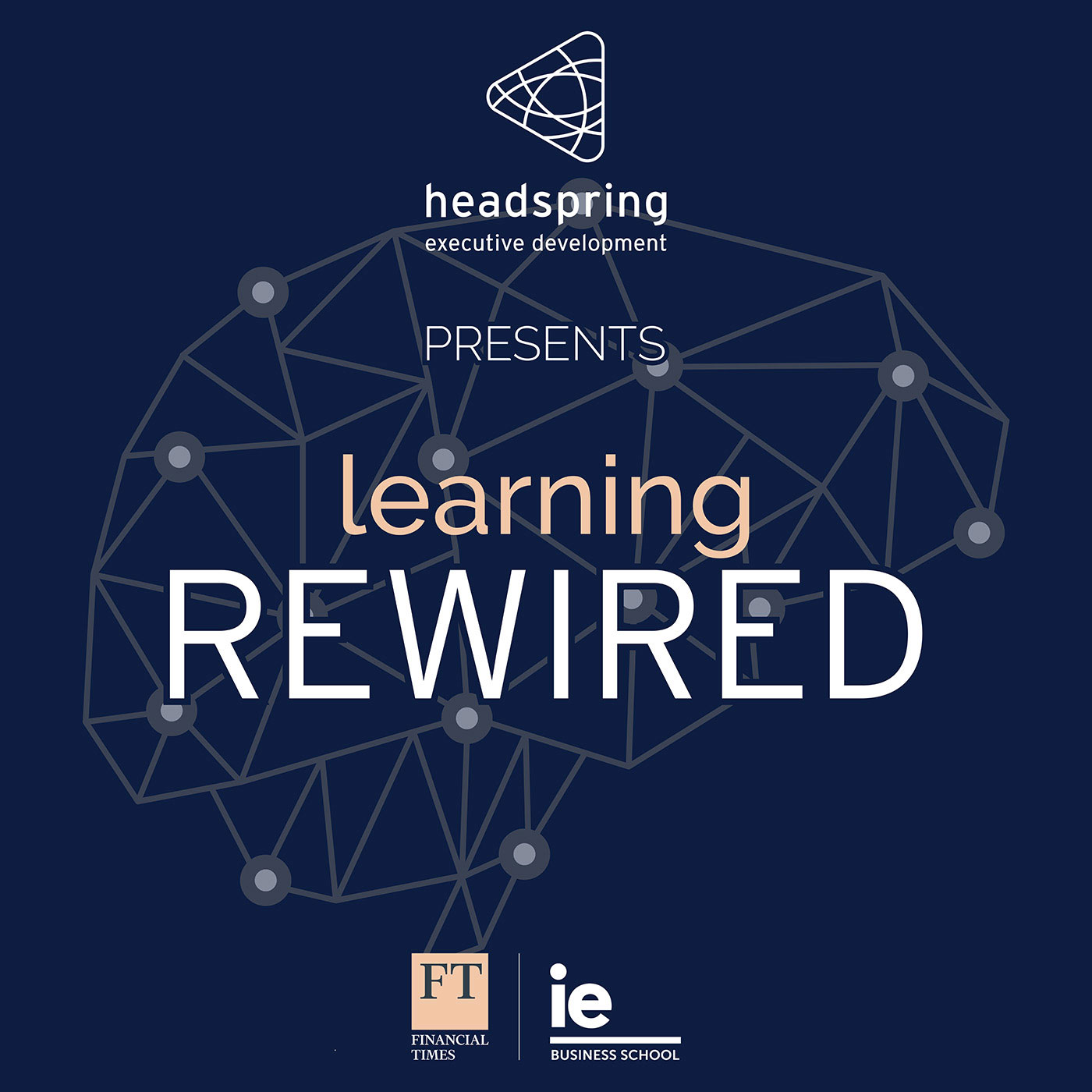- Learning Rewired Podcast
DELIVERING DIGITAL TRANSFORMATION
Discover some of the many lessons Professor Alan Brown has condensed into his book: Delivering Digital Transformation.Listen on Spotify Listen on Apple Podcasts

#07 Delivering Digital Transformation
In this episode, digital economy expert Professor Alan Brown shares some of the many lessons he has condensed into his new book: Delivering Digital Transformation and answer questions like:
- What makes the current shifts in digital transformation a genuine revolution unlike anything we have seen before
- Why HR and L&D roles are critical to successful digital transformation
- What’s at risk for leaders who ignore the need for proactive ownership of digital transformation

Alan Brown
Alan W. Brown is a Professor in Digital Economy at the University of Exeter Business School, co-leading the Initiative in Digital Economy at Exeter (INDEX).
Recognised as one of the most influential people in digital innovation and business transformation, Professor Alan has been named in the apolitical.co 2018 list of the world’s 100 most influential people in digital government, and received a Fellowship from the Alan Turing Institute, the UK national institute for AI and data science.
His work can be witnessed in over 60 published papers and several published books. Professor Alan research is focused on agile approaches to business transformation, and the relationship between technology innovation and business innovation in today’s rapidly-evolving digital economy.
The impact of his research is seen in his consulting activities where he advises several startups and works with clients in the public and private sector including the UK National Audit Office, Centrica, SAP, Resonate, McLaren, and several UK Government agencies.
Learn more about Alan BrownIn this episode
What is the digital revolution? If we go back to the 1950s, there was a revolution around computation. The idea of a computer was that we could do relatively simple computations, quickly, robustly. We started to open that up to people that didn't have the opportunity to do that before and human tasks were recast as a series of automated computations and we started to get into this computational revolution. Then the price of computation went through the floor, therefore we could expand and recast human activities as millions of computations run quickly and robustly.
We've now moved from computation to algorithms and artificial intelligence, that allow us to think about human problems and computational problems as predictive problems. In the last few years, the price of prediction has gone through the floor. Imagine all the things that are possible, when we start to have that ability to predict and to be able to do it robustly with large amounts of data which is what powers prediction, with a cost model that says this can be done cheaply and easily, and by a large community - we are in a completely different world - that's revolution.
We're in this revolution that's changing it from a computational approach to solving problems to a predictive algorithmic based approach.
What are some of the challenges HR face while going through a practical process of digital transformation within their organisation? The classic HR function is about people about the heart of organisation, the people, their skills, the contribution they make the wellness of those people in the workplace, your ability to develop people. Digital transformation is happening to those functions, because of what's happening around them.
People in a particular business unit are applying new digital technologies to drive new product behaviours, to sell more product to understand the use of that product in a marketplace. Other parts of the organisation might be trying to do new r&d activities, using new technologies in order to look at how those technologies can support new kinds of offerings into the marketplace. HR tends to be right at the centre of a conversation, an integration of who you hire, why you hire them, what capabilities they offer to the organisation, how you develop those capabilities, how the individuals themselves are valued within that organisation. And they have to do that, while these different stakeholders are going through this transformation for themselves about who they are, what they're developing, who they serve.
So digital transformation is happening in HR and digital technologies are changing what HR does, how they hire, who they hire, how they manage the workload, how they look at their own people.
Digital transformation initiatives are essential for organizations to remain competitive and relevant in a world that increasingly rewards those that adapt quickly to market changes, continually innovate, and consistently outperform in service and value delivery. Alan Brown